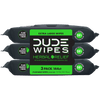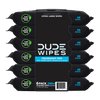Anal Warts 101: Symptoms, Causes, Treatments, and Prevention
The average person has plenty of butt-related issues to worry about: itching, sweating, burning, and that awful stench. However, there’s one butt problem that causes more stress than all the others combined: anal warts.
Also called condyloma acuminata, anal warts are small, soft bumps that form inside or around your rectum. They often go unnoticed, but when you do find them it’s easy to jump to the worst case scenarios.
Will anybody want to be with me? Does this mean I have cancer?
Before you press the panic button, it’s important to know that anal warts are super common and super treatable. But that doesn’t mean you can ignore them.
In this article, we’ll cover everything you need to know about anal warts including the symptoms, causes, treatment options, and more.
What Are Anal Warts?
Anal warts are small, grainy skin growths that form on the skin inside or around your butt hole. They are caused by human papillomavirus (HPV), a sexually transmitted infection (STI) that you get from skin-to-skin contact with an infected person.
Anal warts can be hard to identify at first because they’re often small and painless. However, they can grow and cause discomfort if they go untreated.
Symptoms of Anal Warts
Here’s a rundown of what people commonly experience with anal warts
- Location: anal warts growaround your rectal area or inside your anal canal
- Size: anal warts often start as small as a pinhead, but can grow in clusters to form a cauliflower-like appearance
- Color: the wartsmay blend in with your skin tone, but can also be light brown, yellow, pink, or peach-colored
- Pain: anal warts rarely cause pain or discomfort, but they can cause itching, bleeding, or rectal discharge
Anal Warts vs. Hemorrhoids
Anal warts are sometimes confused with hemorrhoids, but they’re very different conditions.
For starters, anal warts are skin growths whereas hemorrhoids are swollen veins that protrude from your anal canal. Warts feel rough to the touch, but hemorrhoids are smooth and much more sensitive.
The other main difference is how they’re caused. Anal warts are triggered by human papillomavirus, a sexually transmitted disease (STD) which spreads through sexual contact. Hemorrhoids have nothing to do with sex—they can happen as you get older or if you push too hard when you poop.
If you’re experiencing a lot of pain, chances are it’s hemorrhoid, not an anal wart.
How Do You Get Anal Warts?
Anal warts are caused by the HPV virus, which you can get by having vaginal intercourse, anal intercourse, or oral sex with someone who has the virus. You can also get it from skin-to-skin contact with an infected person.
Anal warts are super contagious—they can even spread when a person isn’t showing any symptoms.
HPV is one of the most common infections out there. Nearly all men and women who are sexually active get HPV at some point, according to the Centers for Disease Control and Prevention (CDC). However, not everybody who comes in contact with HPV gets genital warts.
Do Anal Warts Mean You Have Cancer?
Anal warts are not cancerous, nor do they increase your chance of getting anal cancer. However, HPV (the virus that causes anal warts) can lead to cancer in rare cases.
There are dozens of types of HPV, but 90% of anal warts are caused by HPV6 and HPV11—two strains that aren’t usually associated with cancer.
How Are Anal Warts Diagnosed?
You might be tempted to self-diagnose yourself with a mirror in the bathroom. But the only way to know for sure if those bumps on your bum are anal warts is to see a doctor. There isn’t a test for anal warts or genital warts—they’re diagnosed by their appearance.
Your healthcare provider will start with a physical exam to inspect the skin around your anal area and genital area. If the warts look suspicious, your provider may want to do a biopsy, which is when a small piece of the tissue gets examined under a microscope.
For women, pap tests can detect vaginal and cervical issues caused by genital warts or the warning signs of cervical cancer.
Do Anal Warts Go Away On Their Own?
Anal warts typically go away on their own, but this can take anywhere between a few months to a few years. Although visible anal warts fade away, the HPV virus itself can linger in your skin cells and cause outbreaks down the line.
How to Treat Anal Warts
There are two main routes to get rid of anal warts: topical treatments and surgery.
Topical Medications for Anal Warts
These ointments are usually the first line of defense against anal warts:
- Imiquimod (Aldara)
- Podophyllin and podofilox (Condylox)
- Trichloroacetic acid (TCA)
DO NOT put over-the-counter wart remover on your butt—that stuff isn’t designed for your sensitive sides.
Surgical Treatments for Anal Warts
Surgery is typically reserved for anal warts that don’t go away after topical treatment. These procedures remove the warts from your anal area:
- Cryosurgery: freezing the warts off
- Electrocautery: burning the warts off
- Excision: cutting the warts off
- Laser wart removal
- Interferon injections: a substance that helps the immune system fight infections
How to Prevent Anal Warts
The key to preventing anal warts is preventing HPV. There are two main ways to do that:
HPV Vaccines
Anybody from ages 9-45 can get the HPV vaccine, which is a series of two or three shots. In addition to protecting against anal warts, HPV vaccines also fight strains of HPV that are linked to cervical cancer.
Practice Safe Sex
Wrap it up, DUDES. Condoms are an easy and effective way to lower your risk of getting anal warts, not to mention the dozens of other STDs out there.
Be Careful Wiping with Warts
Anal warts might make your DUDE regions more sensitive than normal. When that happens, don’t cause any collateral damage with dry, itchy toilet paper. Kick that crap to the curb and treat your ass to DUDE Wipes: extra-large flushable wipes infused with aloe and vitamin E.
Looking for an even more soothing experience? Try DUDE Wipes Herbal Relief, infused with witch hazel and geranium to cleanse and heal your hole at the same time.









